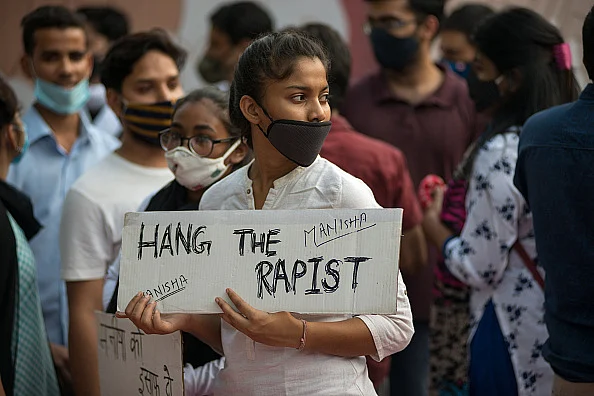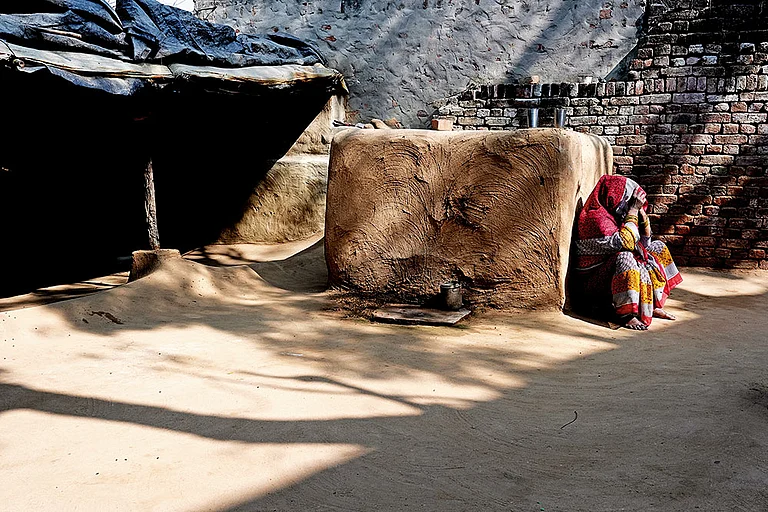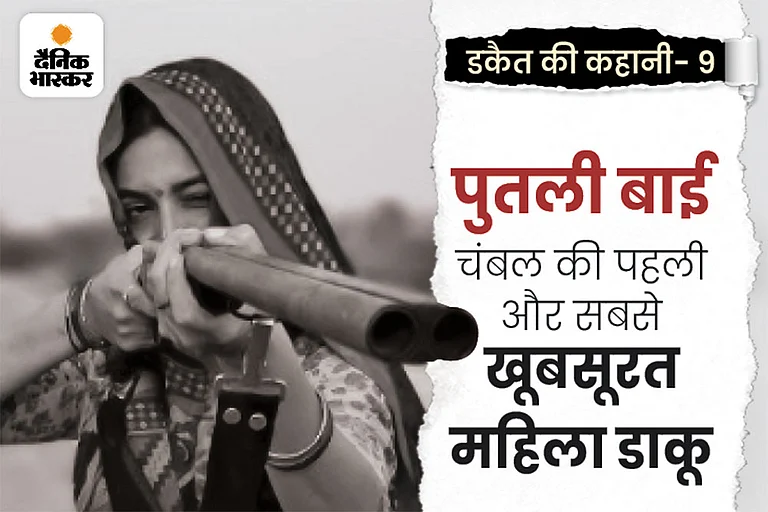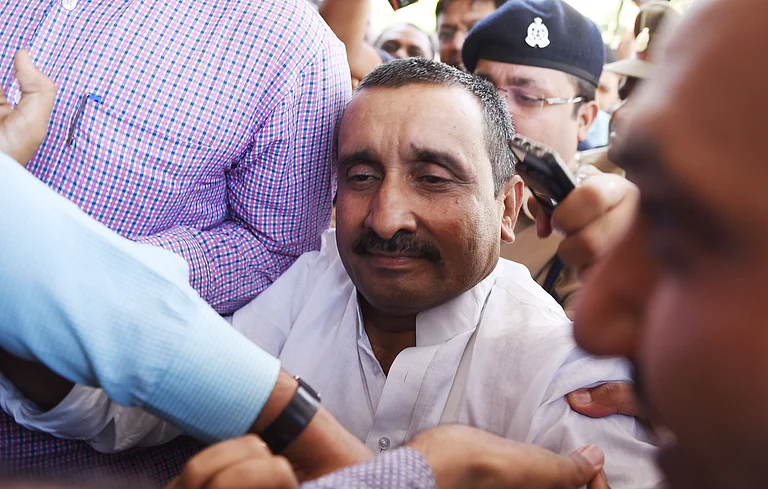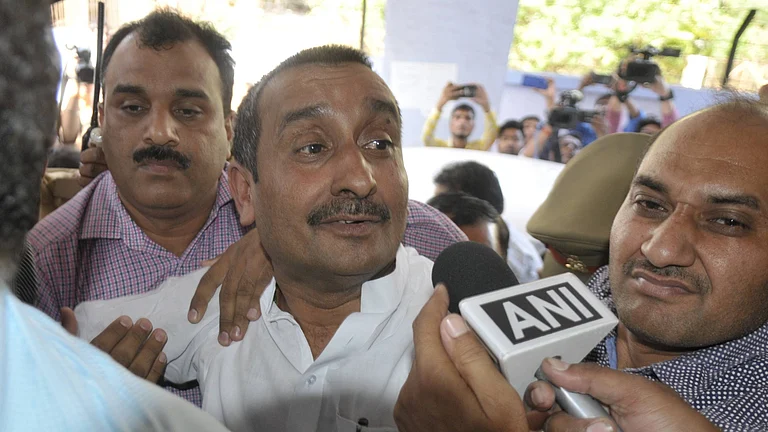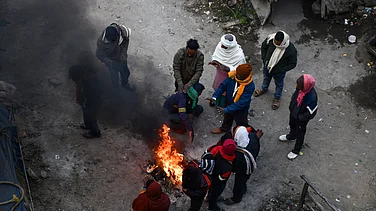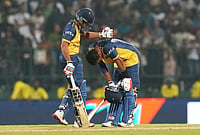—Judicial observations while acquitting those convicted for rape by trial courts
DOES it matter then that Union home minister L.K. Advani has recently promised death penalty for rapists? Does it matter that last week the chief ministers' meet had capital punishment for the crime high up on its agenda? What do these grandiose announcements mean in a country where a woman is raped every 53 minutes, where every seventh minute an act of criminal violence claims a woman victim?
Very little, considering the conviction rate in rape cases stands at a paltry 4 per cent. "Add to that the judicial dicta 'the graver the punishments, lesser the conviction' and you realise these mega-pronouncements are really about political sensationalism. The fact that our government shouts 'death sentence' and the National Commission for Women ex-chairperson follows it up by calling for castration of rapists just shows a warped belief in a weird linkage between increasingly barbaric and sensational punishments and greater liberation for womankind," observes Flavia Agnes, Bombay-based women's rights lawyer. "If only they'd look at mundane nitty-gritties."
Like weed out the Rape Law for sections that allow defence lawyers to use a victim's past sexual history to disprove rape and others that forbid prosecution advocates to rely upon the past character of the accused to prove the offence.
"This blood-for-blood solution is so simplistic," says Jaipur-based activist Kavita Srivastav, intensely involved in many of the anti-rape crusades in the state. "So easy to flaunt as a formula to undo the complexities of the problem. As it is, most rapists roam free for weeks after the crime because the burden to prove is the victim's. Death penalty will make proving the offence even more difficult." Kavita should know, considering she and other feminists in the state watched helplessly the five accused in the Bhanwari Devi case being acquitted in '95. This, despite the media attention and a sessions court ruling clearly stating the victim's "lower caste" and the advanced age of the accused as reasons why rape couldn't have occurred.
"Sometimes it seems we live in the middle ages: our crimes, our justice, our deterrents; now even our punishments belong to history books. Why doesn't the minister, with his concerns for women's safety, think up some 21st century solutions? Appoint special courts for sexual assault cases and see that all cases are disposed of within a month?" asks Viji Srinivasan of Patna-based NGO Aditi. Calcutta-based activist Indrani Sinha of Sanlaap, an NGO working with prostitutes and their children is in vehement agreement: "If we're thinking punitive deterrence, why think so negative? Why not rigorous punishment; more rigorous counselling during imprisonment? How will the state better the situation by killing few perpetrators in a crime that takes place within families and even within marriages!"
But such logic doesn't appeal to those who say they're 'for' death penalty to rapists. BJP member and chairperson of the Social Welfare Board Mridula Sinha says nothing short of such punishment will instil fear in men scared of nothing: "What better way for the state to show its concern for a crime so much on the increase? Minor girls are being raped and such rapists ought to be hanged. "
Somewhat less categorical in her stance, Sheila Ghatate, chairperson of the Delhi Commission for Women, feels death penalty is advisable only in extreme cases, "for instance rape of a very young girl or gang rape as rapists in these cases may kill the victim to destroy evidence."
Poona-based feminist Neelam Gorhe, consultant to the Shiv Sena on women's policies, isn't totally opposed to the idea of capital punishment for rapists. The problem with those who oppose the idea, she argues, is they see it as an isolated remedy to tackle the heinous crime. "It's not as if nothing other than killing rapists should be done. Speedy and sensitive trials, better investigations should go hand in hand with making the punitive measures more severe," says she. "It's not an either/or situation. Any step taken by authorities should be welcome. Because it is needed."
But the needs of feminists can't be different from those of humanists. And those who fight for women's rights will not ignore issues of human rights. And human rights' activists worldwide are working towards abolishing capital punishment... So? So, no one claimed the issue of rape and capital punishment would be a simple one. Then why simplistic statements to resolve complex issues? Certainty of punishment first. Then let's talk about its severity.






